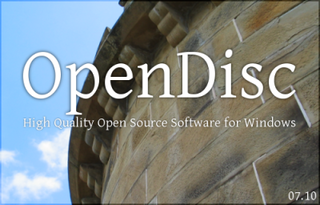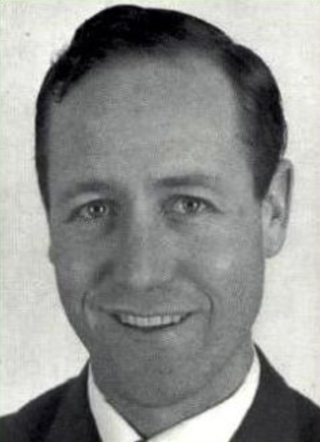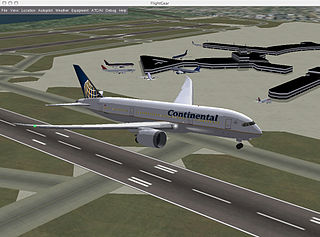The free software movement is a social movement with the goal of obtaining and guaranteeing certain freedoms for software users, namely the freedoms to run, study, modify, and share copies of software. Software which meets these requirements, The Four Essential Freedoms of Free Software, is termed free software.

A repetitive strain injury (RSI) is an injury to part of the musculoskeletal or nervous system caused by repetitive use, vibrations, compression or long periods in a fixed position. Other common names include repetitive stress injury, repetitive stress disorders, cumulative trauma disorders (CTDs), and overuse syndrome.

A wiki is a form of hypertext publication on the internet which is collaboratively edited and managed by its audience directly through a web browser. A typical wiki contains multiple pages that can either be edited by the public or limited to use within an organization for maintaining its internal knowledge base.
SourceForge is a web service that offers software consumers a centralized online location to control and manage open-source software projects and research business software. It provides source code repository hosting, bug tracking, mirroring of downloads for load balancing, a wiki for documentation, developer and user mailing lists, user-support forums, user-written reviews and ratings, a news bulletin, micro-blog for publishing project updates, and other features.
Source-available software is software released through a source code distribution model that includes arrangements where the source can be viewed, and in some cases modified, but without necessarily meeting the criteria to be called open-source. The licenses associated with the offerings range from allowing code to be viewed for reference to allowing code to be modified and redistributed for both commercial and non-commercial purposes.
Computer vision syndrome (CVS) is a condition resulting from focusing the eyes on a computer or other display device for protracted, uninterrupted periods of time and the eye's muscles being unable to recover from the constant tension required to maintain focus on a close object.

Free and open-source software (FOSS) is software that is available under a license that grants the right to use, modify, and distribute the software, modified or not, to everyone free of charge. The public availability of the source code is, therefore, a necessary but not sufficient condition. FOSS is an inclusive umbrella term for free software and open-source software. FOSS is in contrast to proprietary software, where the software is under restrictive copyright or licensing and the source code is hidden from the users.

Nintendo thumb, also known as gamer's thumb and similar names, is a form of repetitive strain injury (RSI) caused by excessive playing of video games with the traditional Nintendo controller. This injury mainly occurs due to repeated thumb movements while playing video games. The symptoms can include blistering, paraesthesia, as well as swelling of the thumbs, though any finger can be affected. This can lead to stress on tendons, nerves, and ligaments in the hands, and further onto lateral epicondylitis, tendinitis, bursitis, and carpal tunnel syndrome. Similar injuries can occur with other gaming systems, such as PlayStation thumb from playing Sony PlayStation. The general recommendation for the treatment is to rest and stop the repetitive motion of the affected finger. In more severe and painful cases, using NSAIDs is also recommended.
The PLUM keyboard is a keyboard layout which differs from the traditional QWERTY keyboard in both physical key layout and letter arrangement. Unlike most keyboards, the PLUM keyboard organizes keys in a square grid, as opposed to the staggered rows of a typewriter. Though the Plum Keyboard is currently off-line, it is still being promoted.
PCD Maltron Ltd, trading as Maltron, is a manufacturer of ergonomic special-needs keyboards. It was founded by South African-born inventor Lillian Malt and manufacturer Stephen Hobday. Maltron specialises in making keyboards for the prevention and etiological treatment of repetitive strain injury.
VNI Software Company is a developer of various education, entertainment, office, and utility software packages. They are known for developing an encoding and a popular input method for Vietnamese on for computers. VNI is often available on computer systems to type Vietnamese, alongside TELEX input method as well. The most common pairing is the use of VNI on keyboard and computers, whilst TELEX is more common on phones or touchscreens.

The OpenDisc project offered a selection of high quality open source software on a disc for Microsoft Windows users. The aims of the project were "to provide a free alternative to costly software, with equal or often better quality equivalents to proprietary, shareware or freeware software for Microsoft Windows", and "to educate users of Linux as an operating system for home, business and educational use".

Free content, libre content, libre information, or free information is any kind of creative work, such as a work of art, a book, a software program, or any other creative content for which there are very minimal copyright and other legal limitations on usage, modification and distribution. These are works or expressions which can be freely studied, applied, copied and modified by anyone for any purpose including, in some cases, commercial purposes. Free content encompasses all works in the public domain and also those copyrighted works whose licenses honor and uphold the definition of free cultural work.
Natural-language user interface is a type of computer human interface where linguistic phenomena such as verbs, phrases and clauses act as UI controls for creating, selecting and modifying data in software applications.

A free-software license is a notice that grants the recipient of a piece of software extensive rights to modify and redistribute that software. These actions are usually prohibited by copyright law, but the rights-holder of a piece of software can remove these restrictions by accompanying the software with a software license which grants the recipient these rights. Software using such a license is free software as conferred by the copyright holder. Free-software licenses are applied to software in source code and also binary object-code form, as the copyright law recognizes both forms.
Proprietary software is software that grants its creator, publisher, or other rightsholder or rightsholder partner a legal monopoly by modern copyright and intellectual property law to exclude the recipient from freely sharing the software or modifying it, and—in some cases, as is the case with some patent-encumbered and EULA-bound software—from making use of the software on their own, thereby restricting their freedoms.

Richard Townsend "Richie/Ritchie" Gun is a retired politician and doctor.

A flight simulation video game refers to the simulation of various aspects of flight or the flight environment for purposes other than flight training or aircraft development. A significant community of simulation enthusiasts is supported by several commercial software packages, as well as commercial and homebuilt hardware. Open-source software that is used by the aerospace industry like FlightGear, whose flight dynamics engine (JSBSim) is used in a 2015 NASA benchmark to judge new simulation code to space industry standards, is also available for private use. A popular type of flight simulators video games are combat flight simulators, which simulate combat air operations from the pilot and crew's point of view. Combat flight simulation titles are more numerous than civilian flight simulators due to variety of subject matter available and market demand.










